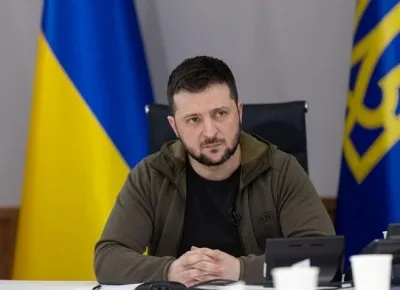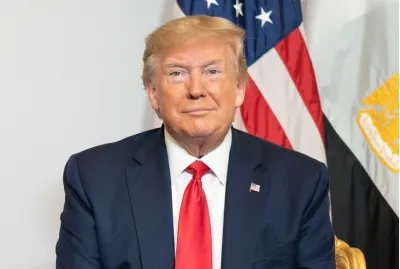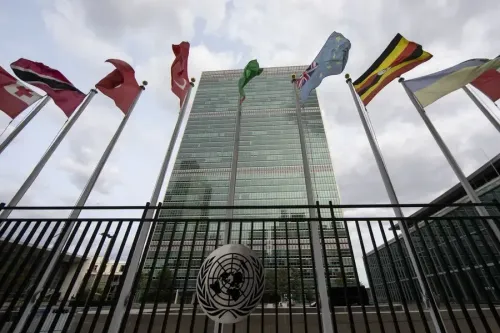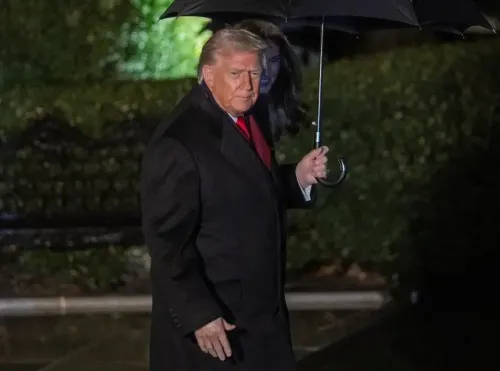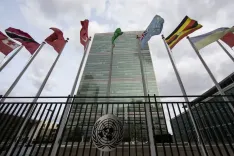Should Women Be Nominated to Succeed Guterres as UN Secretary-General?

Synopsis
Key Takeaways
- UN leaders advocate for women candidates for secretary-general.
- No woman has held the secretary-general role in the UN's history.
- Two women have received formal nominations: Rebeca Grynspan and Michelle Bachelet.
- The elections are set for next year, with a new secretary-general taking office in 2027.
- The UN aims for gender and geographical balance in leadership roles.
United Nations, Nov 26 (NationPress) The leaders of the Security Council and the General Assembly have urged for female candidates to shatter the glass ceiling at the world organization by vying for the secretary-general position to follow Antonio Guterres.
“Member states are encouraged to actively consider nominating women as candidates,” Assembly President Annalena Baerbock and Council President Michael Imran Kanu stated in their communication to UN member states, marking the commencement of the election process for secretary-general on Tuesday.
They expressed their “regret that no woman has ever held the position of secretary-general.”
The elections are slated for next year, with the elected individual set to become the tenth secretary-general on January 1, 2027, succeeding Guterres, who will be concluding his second term.
Currently, two women with significant leadership experience in UN organizations have received formal nominations from their respective nations.
Rebeca Grynspan, the secretary-general of the UN Conference on Trade and Development (UNCTAD) and a former vice president of Costa Rica, has been nominated by her country.
Chile has put forward its former president Michelle Bachelet, who has previously served as the UN High Commissioner for Human Rights.
David Choquehuanca has been nominated by a coalition of 36 groups representing the indigenous peoples of Bolivia, but it remains unclear if he has the necessary endorsement from Bolivia's current leadership to formalize this nomination.
The Council, which has veto powers among its five permanent members, determines the election's outcome, as the UN Charter specifies that the Assembly appoints the UN’s chief official “upon the recommendation of the Security Council.”
The Charter’s language refers to the secretary-general as “he,” reflecting a historical trend that leaders are now seeking to change.
During the 2016 election, expectations were high that a woman, ideally from Eastern Europe, would be chosen, and several strong female candidates emerged.
Ultimately, however, Guterres, a former Prime Minister of Portugal and the UN High Commissioner for Refugees, emerged victorious, being the only candidate acceptable to Russia, China, and Western nations.
In a resolution outlining election norms, the Assembly emphasized the need for “continued efforts towards achieving equal and fair distribution in terms of gender and geographical balance.”
Candidates are required to present a vision statement regarding their leadership approach for the UN and disclose the sources of funding for their campaign.
In an unprecedented move in 2016, the election process was drawn from behind the scenes, allowing candidates to publicly present their vision statements and engage with member countries and civil society in open hearings.
An organization named 1 for 8 Billion, advocating for a female candidate for the position and monitoring the election, has identified several “rumored candidates.”
These include UN Deputy Secretary-General Amina Mohammed, who has British and Nigerian roots and previously served as Nigeria's environment minister; Kristalina Georgieva, head of the International Monetary Fund and a Bulgarian who was a leading contender in 2016; former New Zealand Prime Minister Jacinda Ardern; Maria Fernanda Espinosa Garces from Ecuador, a former Assembly president; and Mia Mottley, Prime Minister of Barbados.
Argentinian Rafael Grossi, the director-general of the International Atomic Energy Agency, has also expressed interest in the role.

